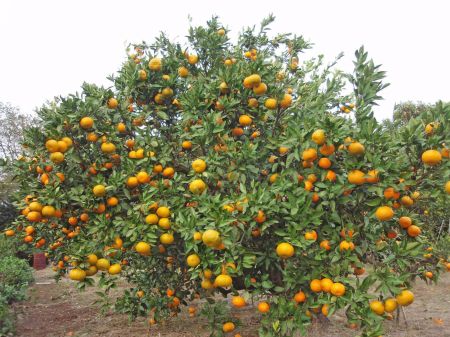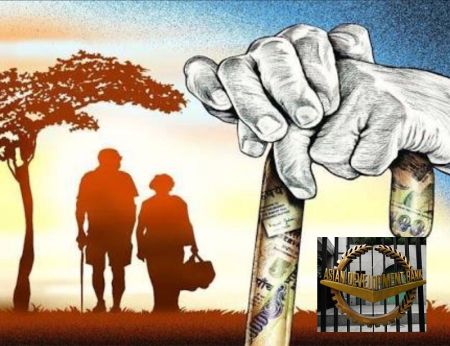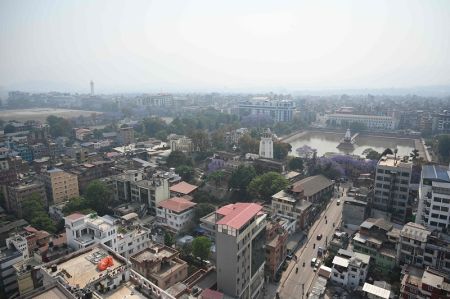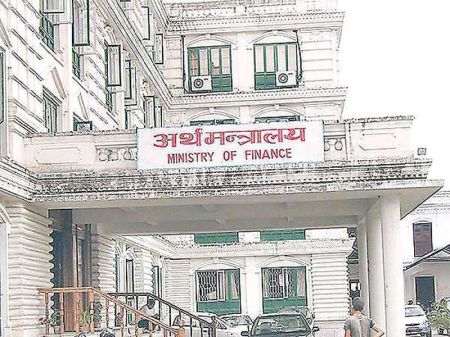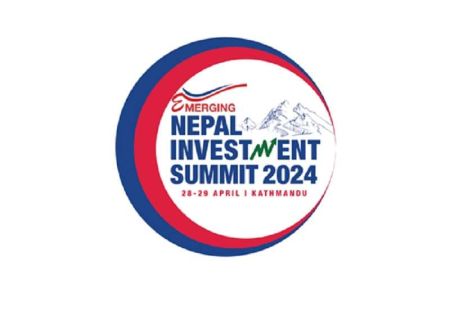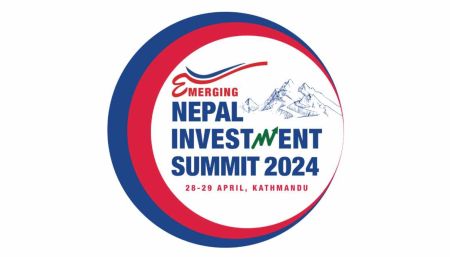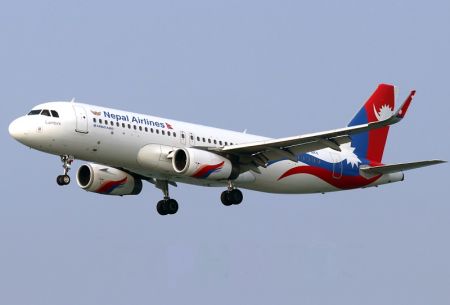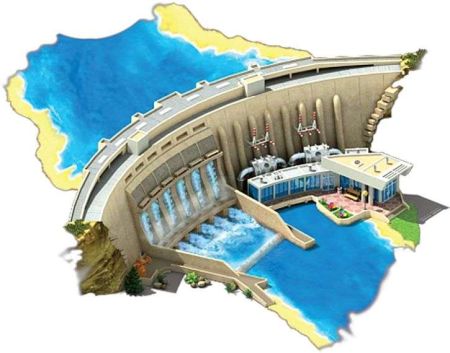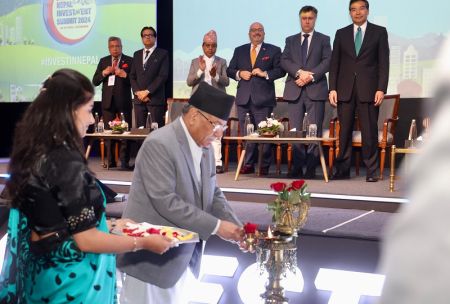.JPG) |
| Martine BASSEREAU French Ambassador to Nepal |
How have the diplomatic and friendly relations between Nepal and France evolved over the years?
France is one of the first foreign countries to establish diplomatic relations with Nepal 65 years ago. Since April 1949 up to now, 20 French ambassadors have been accredited to Nepal. The relationship has always been maintained high at political, historical, cultural, artistic, touristic and sporting (with trek and climb) level. In the changed context, our priorities are not only to keep them up, but also to develop economic diplomacy.
In what areas were Nepal-France relations concentrated in the past? What are the new priorities?
As far as trade relations are concerned, France is the 9th largest trade partner of Nepal. Trade between Nepal and France has been quite steady for the last ten years: the total amount of goods exchanged between the two countries has been worth between 20 and 30 million Euro since 2004. To be more precise, France is mainly importing textile products from Nepal; Nepal is mainly importing aircraft, mechanical, electrical or electronic products as well as wood products. Looking at the figures, it is amazing to see that our total bilateral trade exchanges have not at all been affected by the 2008 global financial crisis, contrary to what has been observed with most of France’s trade partners. This makes me think that there is a kind of resilience in economic relations between France and Nepal.
But one should not forget that economic relation is not only trade. It is also investment. According to the figures from Nepal's Ministry of Industry, eight investments from French companies were registered in 2012, mostly in the hospitality sector. Is that an underperformance? I am not sure, as this has to be compared to the overall number of foreign investments in Nepal in 2012 (227 only, if I am not wrong).
Looking at the future, I am firmly convinced that these economic relations can be more buoyant, both in terms of trade and investment.Efforts led by the government to infuse confidence in the markets have already had some positive effects on the business climate. This is the feedback I have received from the delegation of 15 French companies which paid a visit to Kathmandu at the end of April to assess market opportunities in Nepal. These companies - including Alstom, Dassault Systèmes, EDF, Lumiplan, Safran Morpho, Systra and Veolia Transport –are already settled in India and have clearly manifested some interest in investing in Nepal.
How is the bilateral economic cooperation? How can it be increased?
You made a very good point talking about economic cooperation. Indeed, this can also be a way to strengthen our economic relations.
France is keen on supporting the development of Nepal. France is ready to mobilize all its available resources in this respect, including financial ones. Let me give you an example. Within the scope of the visit of the French business delegation in April, both the Nepali Minister of Finance and the State Secretary for Transport confirmed that having a cable car in Kathmandu is among the top priority infrastructure projects for the country.
France is also bringing indirect support to Nepal, through the European channel. It is precisely the case in the field of civil aviation. The EU is preparing a technical cooperation programme that will aim at accompanying the Civil Aviation Authority of Nepal to upgrade its standards (in terms of safety notably) and meet the international norms set by the ICAO and the EASA. France may even complement the European cooperation programme, once it has been fully set up.
These are different examples of bilateral economic cooperation between our two countries. In the future, I would not be surprised if a formal dialogue on economic cooperation is formally established – like the ones France has with other countries in South Asia. That would be a natural extension of the renewed interest of French companies for Nepal.
The French government had been providing a few scholarships in the field of public administration, diplomacy, journalism, hotel management, musicology, literature, French as a second language etc until the last few years. But it is said that the scholarships were discontinued? Can they be revived?
France gives scholarship for the best student at “Alliance Française”.
The bilateral trade is in France’s favour. What do you suggest to Nepal to lower the trade deficit with France? How can France assist in this process?
How to lower the trade deficit? See, I am not really sure this is the best way to shed light on the situation. Having a trade deficit because of excessive imports of consumer goods is undoubtedly a problem. But, as I said before, a large part of the trade deficit with France is due to Nepal’s needs for aircraft or for electrical or electronic products. One should keep in mind that these kinds of products are investment goods and not consumer goods. In other words, these imports from France are clearly feeding Nepal’s growth potential. Nepal is investing today for growth tomorrow. This is the positive spillover observers do not always include in their diagnosis. But they should. To be even more specific, Nepal is importing aircraft because interconnection with the rest of the world is vital to promote the development of the country and there is no credible alternative to the use of airlines for a landlocked country such as Nepal.
Nepal and France signed an agreement concerning Reciprocal Promotion and Protection of Investments in 1983. Has this agreement born fruits as expected?
This agreement is very important as it is providing a legal framework for bilateral investment. But it is not a sufficient condition to promote investment per se. Investors – whatever their country of origin – need the environment to be fully predictable before investing a single rupee. The recent visit of a delegation of French companies can be interpreted as the signal that the overall environment is now more supportive for business.
What could be the areas of interest in Nepal for French investors?
There is a clear need for developing urban infrastructures in Nepal. It is a field where France has tremendous experience worldwide. French architects and urban planners as well as French companies providing services for urban infrastructure (city engineering, urban transport, water and waste management, urban lighting, street furniture, etc.) are playing an essential role in the transformation of cities and urban life in France and in the rest of the world. Their specialised know-how, their creative and innovative skills and their adapted solutions are well known all over the world. Most of these companies (such as Alstom Transport, Citélum, Dassault Systèmes, Egis, EFG, Faiveley, JCDécaux, Keolis, Lumiplan, Railtech, Sita, Suez Environnement, Systra, Thalès, Veolia Transport-RATP, Veolia Water and VosslohCogifer) are already established in India and are keen on bringing their solid contribution for the development of better urban services and infrastructure in Nepal as well.
Another field of interest concerns renewable energy. Numerous French companies are well positioned in the manufacture, installation and maintenance of production equipment and the sales of renewable energies: Alstom Power, Areva Renewables, BRGM (geothermal energy), EDF Energies Nouvelles, Fonroche, Mecamidi (hydroelectricity), Solairedirect, Total Sunpower (solar energy, wind energy), etc.
Last but not least, some investors from the agro-business industry have shown some interest in investing in Nepal. In this respect, a new delegation of French companies may visit Nepal by the end of the year.
Given the potential of French investors, it seems that Nepal hasn’t been able to really attract French investment. What should Nepal do to bring in a significant amount of French investment?
The situation has been changing in the good way since the beginning of 2014. Nepal has always been on the radar of French investors for years but uncertainty about the political environment was a kind of hindrance for them.
It is said that France generates 25 per cent of Europe's entire electricity supply.That is enough to show France’s experience and expertise in hydropower exploitation. Are French companies interested to invest in Nepal’s hydropower, tourism and other sectors?
As I said before, the renewable energies are among the main fields of interest of French companies for Nepal. There are several projects already on track. EDF, together with the Indian company GMR, has been studying its participation in the large hydro-electric project in Nepal. The energy produced by this plant will supply the local market and the Indian market too. SunPower supplied High Efficiency Modules to Installers in Nepal for execution of their rooftop projects (two projects located in Kathmandu; one of which is under completion).
In the field of tourism, Accor has a regional program which is covering Nepal too.The aim is to have a network of 90 hotels in India, Bangladesh, Nepal, Sri Lanka and Bhutan under operation or under active development by 2015, with at least 50 hotels under operation.
Several developed countries have provided duty-free access to Nepali products. Can we expect the same treatment to Nepali products from France?
This is a very relevant question. But, as you are aware, France is a member of the European Union and the European Union is a single market. All the questions related to trade with any European Union members are treated at the European level. Therefore, discussions with my European colleagues are necessary before replying to your question. This may require some time. But it could give us another opportunity to meet later for pursuing our exchanges!






